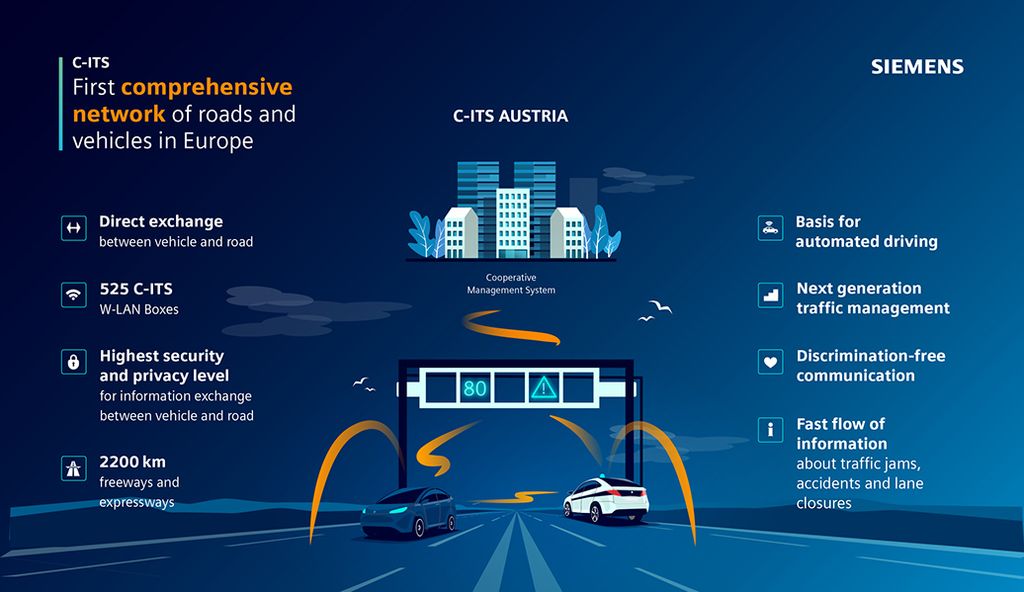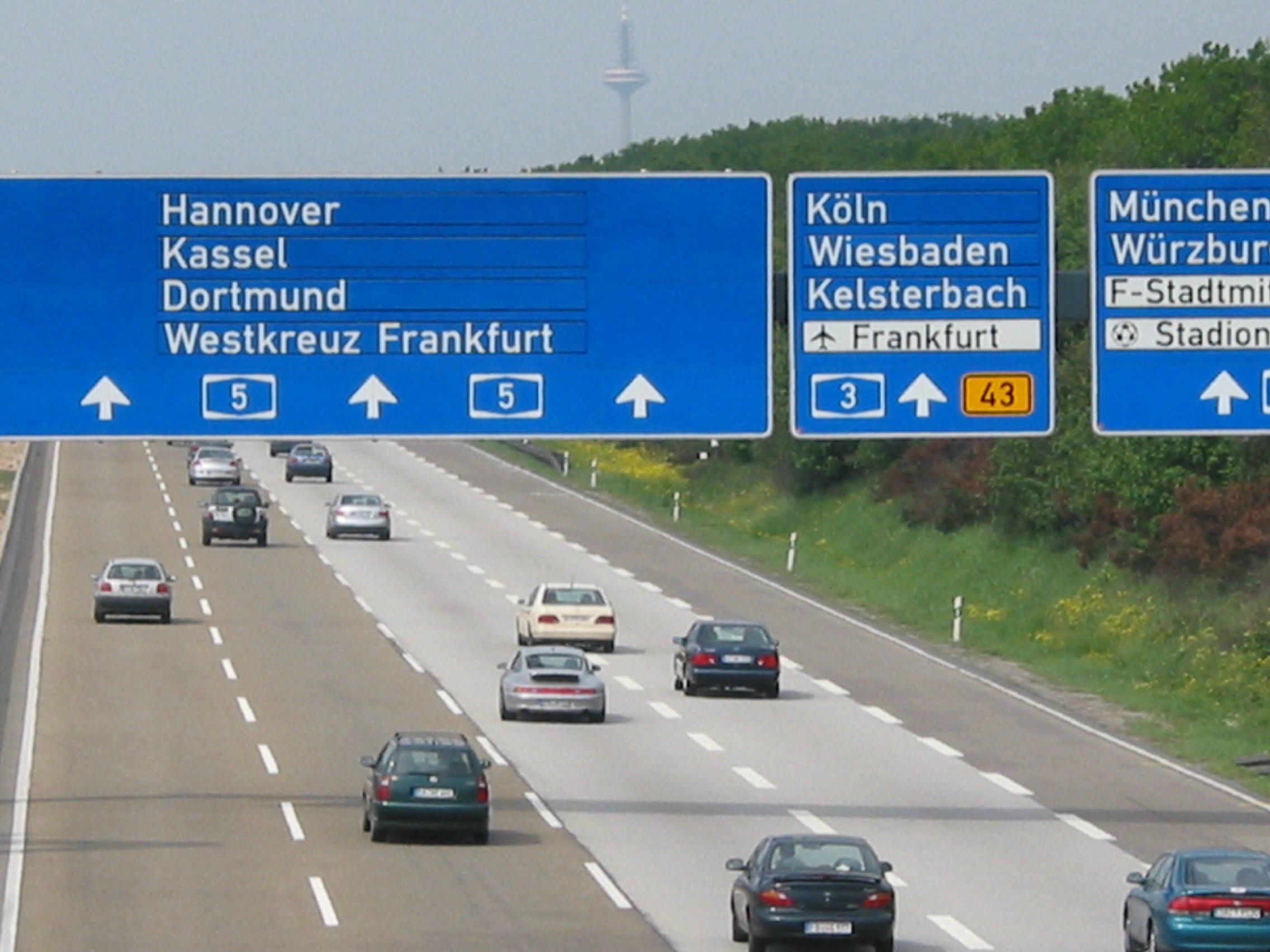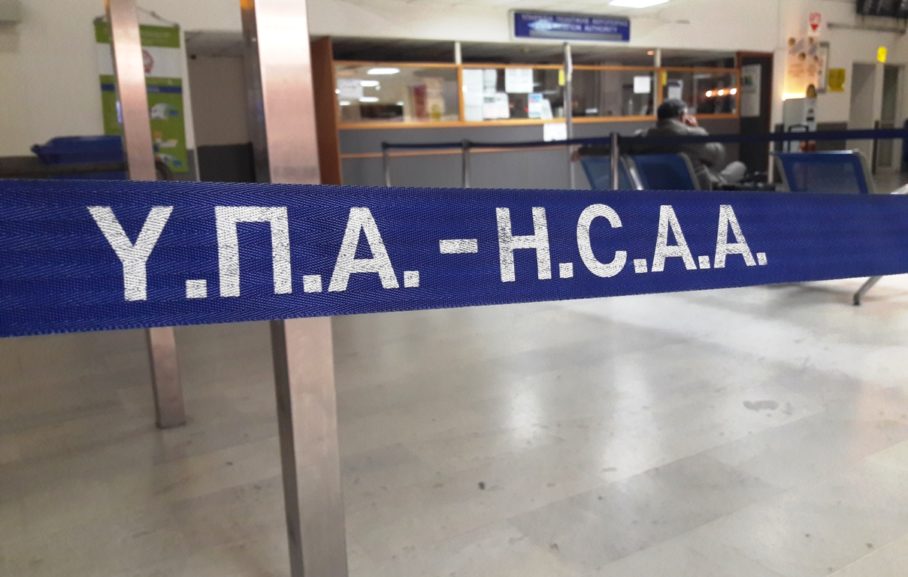Siemens Mobility is pleased to announce that it is partnering with ASFiNAG, the operating authority for the Austrian highway network, to provide the technology for an intelligent traffic management system that facilitates the exchange of safety information between vehicles and the road.
The “Cooperative Intelligent Transport System” (C-ITS) is a next generation traffic management system that uses broadcast technology to analyze roadway conditions and disseminates information to motorists relating to traffic jams, accidents, and lane closures. ASFiNAG is the first infrastructure provider in Europe to reach the milestone of installing a network connecting the vehicle and road. The process of implementing the system across 2,200 kilometers of highway and expressway in Austria has already started.
“The direct connection with our customers provides an important contribution to safe, efficient and sustainable mobility,” said Josef Fiala, Managing Director of ASFINAG.
Bernd Datler, Managing Director of ASFINAG Maut Service GmbH adds: “Direct Short-Range Communication ensures that we reach vehicles immediately and independent from other networks.”
“The digitalization of roadway and traffic management is an essential component of future mobility and we are delighted to partner with ASFiNAG on this groundbreaking project,” said Markus Schlitt, CEO of Siemens Mobility Intelligent Traffic Systems. “We believe intelligent communication and technologies that connect vehicles of all kinds with smart infrastructure helps cities, or in this case highway authorities, manage their mobility and improve quality of life, by significantly reducing congestion, accidents and emissions.”

ASFiNAG has currently initiated the process to install the equipment along Austria’s highways, this includes up to 525 Siemens Mobility Road-Side Units (RSU), as well as establishing a control center. The first C-ITS services that will provide hazard warning services are expected to go into operation within the next 16 months.
With further expansion, the focus will then be on the support of automated driving and networked traffic management. One of the main advantages of C-ITS is that information on traffic disruptions can be exchanged in real time. If a vehicle detects an impairment that is important for other road users, this is immediately communicated to the other compatible vehicles via radio, and those equipped with C-ITS can have these messages displayed directly in the vehicle. C-ITS can also enable emergency vehicles to navigate through the city more quickly and public transport more efficiently if, for example, traffic lights are switched intelligently.
The products and technology being provided by Siemens Mobility facilitate the secure and direct infrastructure-to-vehicle and vehicle-to-infrastructure connection, which creates the necessary framework and conditions for the installation of C-ITS. Specifically, the Siemens Mobility Cooperative Management System (CMS) and RSU work together to link vehicles with infrastructure and traffic management centers through an ITS-G5 connection.
A broadcast technology that provides secure communication between vehicles and the road.As vehicles report their current position, speed, and direction of travel via their Onboard Unit (OBU), the RSU collects this information and communicates it to the CMS. As the controlling mechanism, the CMS links and monitors all RSUs and utilizes the received information to manage traffic more efficiently and in real time. The CMS can send messages to road users via RSUs to alert on hazards and provide latest traffic information.
The bidirectional information exchange between RSUs and OBUs is protected by a C-ITS specific Public Key Infrastructure, which ensures a high level of security and privacy related requirements. The Siemens Mobility products and technology do not discriminate against any vehicle type, and the weatherproof RSU has been developed in line with the very high Siemens Mobility security standards.
(Siemens Mobility)


















































